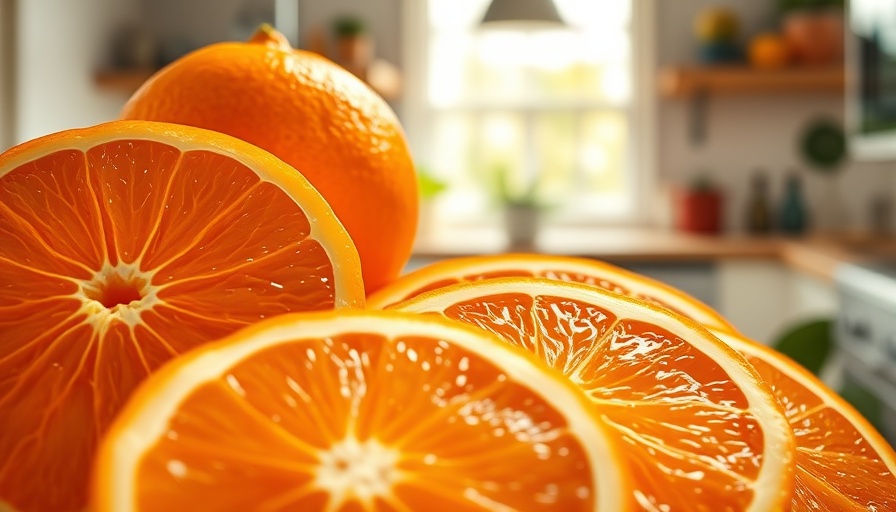
The Balance Test: A Key to Brain Health
Balance is more than just a physical skill; it's intricately linked to our mental and emotional well-being. In today’s fast-paced world, maintaining balance in various aspects of our lives is crucial. Interestingly, recent insights suggest that a simple dental bite test can offer immediate feedback on our body stability and brain function. By biting down, you can instantaneously assess your balance, reflecting a deeper connection between physical posture and mental health.
In 'Bite Down Like This to Instantly Test Your Balance!', the discussion dives into the relationship between physical stability and mental health, prompting us to explore its key insights.
Why Balance Matters for Everyone
Throughout our daily lives, balance plays a pivotal role, influencing everything from our physical posture to our emotional state. A person who feels stable physically is likely to boost their confidence and overall mental health. Conversely, experiencing loss of physical balance could lead to anxiety and fear. Therefore, understanding how to maintain and enhance our balance is essential not only for fitness but also for holistic wellness.
A Simple Assessment: What Did We Learn?
Dr. Mandell's insightful video highlights an easy technique: clenching your teeth while standing helps gauge your balance. This method relies on the neurological connections in our bodies that are activated by our postures. By performing this quick test, you can become more aware of your body’s alignment and stability, leading to potential mental health benefits. If you notice wobbling or instability, it may be a signal from your body that requires self-reflection or consultation.
How to Incorporate Balance Exercises into Daily Life
Incorporating balance exercises into your routine doesn’t have to be daunting. To further enhance your balance and support your brain health, consider activities like yoga, tai chi, or simple posture correction drills. Such exercises not only strengthen your core but also foster mindfulness, reduce stress, and improve overall wellness. Engaging in these practices reinforces our connection to ourselves, proving beneficial for our mental resilience.
Personal Stories: Finding Strength Through Balance
Many individuals have shared their transformative journeys towards better balance in both physical and emotional dimensions. For instance, a dad recounts discovering yoga after a severe ankle injury. He found that the focus required during practice helped reduce his anxiety levels, illustrating how balance can be a cornerstone for personal growth. His story inspires others to try different physical activities that may lead to healing and improved mental health.
Understanding the Neuroscience of Balance
The connection between balance and the brain is particularly fascinating. Our vestibular system—located in the inner ear—plays a crucial role in determining our balance, and thus can affect our mental health. Recent studies indicate a robust link between body alignment and cognitive function. Ensuring good balance through natural remedies like magnesium and vitamin D can enhance brain health and bolster emotional stability.
Creating a Holistic Wellness Approach
Embracing a holistic view of health encompasses much more than just physical fitness; it integrates nutritional elements, mindfulness practices, and emotional support techniques. To achieve this balance, consider assessing your entire lifestyle. Are you eating well? Are you engaging in activities that relieve stress? Simple changes like incorporating more whole foods into your diet or prioritizing hydration can lead to significant improvements in your balance and overall wellness.
Practical Tips: Implementing Balance in Daily Life
Your path to improved balance starts today! Here are a few actionable tips:
- Practice standing on one foot while engaging your core.
- Incorporate balance training in your workouts—try Pilates or balance boards.
- Stay mindful of your posture throughout daily activities.
- Engage in meditation or deep breathing exercises for mental clarity.
- Eat foods rich in essential nutrients, like leafy greens, seeds, and nuts that support both your brain and body health.
With small steps and conscious efforts, you can foster a more balanced and enriching life.
As we conclude our exploration into the importance of balance, consider Dr. Mandell's video a springboard for deeper reflection. Balance goes beyond just standing still—it's a dynamic interplay between our physical selves and mental health. Embrace this balance journey and take action towards a more holistic, healthier you.
For continued motivation and tips in your wellness journey, remember that small, consistent actions can lead to significant changes. Let's prioritize balance together!
 Add Row
Add Row  Add
Add 




Write A Comment